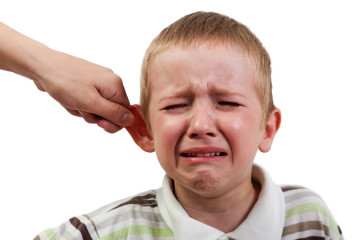Men, Revive Your Love Life: Discover the Power of Lifestyle Changes and Natural Therapies

by Dickson Okorafor July 13, 2023
Love and intimacy are vital components of a fulfilling and joyful life. However, in the midst of our fast-paced modern world, it’s not uncommon for relationships to lose their spark or for individuals to experience difficulties in their love lives. If you find yourself longing to rekindle the passion and deepen the connection in your relationship, or if you’re seeking to enhance your personal journey towards love and intimacy, then this guide is for you.
Revitalizing your love life is an empowering and transformative process, and it begins with a commitment to self-discovery, growth, and embracing the power of positive change. Get ready to embark on a journey of love, connection, and personal transformation as we explore the incredible power of lifestyle changes and natural therapies. Let’s awaken the dormant potential within you and revitalize your love life like never before.
Is your semen volume decreasing?
It’s important to note that while these symptoms may indicate low semen volume, they can also be associated with other underlying factors. To receive an accurate diagnosis and appropriate treatment, it is advisable to consult with a healthcare professional who can evaluate your specific situation and conduct any necessary tests or examinations.
Symptoms of decreasing or low semen volume may include:
Reduced ejaculation volume
One of the main symptoms is a noticeable decrease in the amount of semen you ejaculate. If you observe a significant reduction in semen volume compared to your normal patterns, it could indicate low semen volume.
Changes in consistency
Along with reduced volume, you might notice changes in the consistency of your semen. It may become more watery or thinner than usual.
Altered sensation
Some individuals with low semen volume may experience changes in the sensation or intensity of orgasm and ejaculation. This can vary from person to person.
Do your orgasms feel less pleasurable?
There are various factors that contribute to changes in orgasmic pleasure, including age, hormonal fluctuations, medication side effects, underlying health conditions, psychological factors, relationship dynamics, and lifestyle choices. If you are concerned about changes in the pleasure of your orgasms, it’s advisable to consult with a healthcare professional or a sex therapist who can provide personalized guidance and support.
Experiencing a less pleasurable orgasm can be subjective and vary from person to person. However, there are certain symptoms or indicators that some individuals may associate with a decrease in orgasmic pleasure. These can include:
Weaker contractions
During orgasm, rhythmic contractions of the pelvic muscles typically occur. If these contractions feel weaker or less intense, it may contribute to a perceived decrease in pleasure.
Reduced intensity
The overall intensity or sensation of orgasm may feel diminished compared to previous experiences. This can include a decrease in the buildup of pleasure leading up to orgasm and a less powerful release of sexual tension.
Shortened duration
If the duration of orgasm feels significantly shorter than before, it may be seen as a less satisfying or pleasurable experience.
Diminished emotional response
Orgasm is often accompanied by a release of endorphins and a sense of euphoria. If the emotional or psychological response to orgasm feels diminished, it may be perceived as less pleasurable.
Changes in sensitivity
A decrease in genital sensitivity or diminished sensitivity to sexual stimulation can potentially affect the pleasure experienced during orgasm
Are your climaxes less powerful?
A decrease in pleasure during orgasm can have various causes and can manifest differently for each individual. Note that individual experiences and perceptions of pleasure can vary, and what may be considered less pleasurable for one person might still be enjoyable for another. If you are experiencing persistent or concerning changes in the pleasure of your orgasms, it’s advisable to consult with a healthcare professional or a sexual health specialist who can provide appropriate guidance and support. They can help identify potential underlying causes and recommend appropriate interventions or treatments based on your specific circumstances
Some potential symptoms or indicators of less pleasurable orgasms may include:
Decreased intensity
You may notice a decrease in the intensity of physical sensations or feelings of pleasure during orgasm. The sensations may feel less intense, subdued, or less satisfying than before.
Reduced duration
The duration of the orgasm may be shorter than what you previously experienced, with a decreased period of heightened pleasure and muscle contractions.
Altered sensation
You might experience changes in the quality or character of the sensations during orgasm. It could feel less pleasurable, less intense, or different in some way.
Emotional changes
Orgasms are not only physical experiences but also have an emotional component. If you notice a decrease in the emotional satisfaction, connection, or fulfillment associated with orgasms, it could be an indication of less pleasure.
Mental or psychological factors
Factors such as stress, anxiety, depression, relationship issues, or other psychological factors can impact sexual pleasure and satisfaction, including the experience of orgasm.
Lifestyle Changes, Exercise, Dietary Adjustments, and Alternative Therapies for Your Sexual Well-being
In our modern and fast-paced world, maintaining a healthy and fulfilling sexual life can sometimes be a challenge. Factors such as stress, sedentary lifestyles, and poor dietary choices can take a toll on our overall well-being, including our sexual health. However, the good news is that by making certain lifestyle changes, incorporating exercise routines, adjusting our diet, and exploring alternative therapies, we can enhance our sexual well-being and revitalize our intimate experiences.
You can take charge of your sexual well-being by increasing your
Semen volume
Erection hardness
Orgasm intensity
Ejaculation power
Sexual Pleasure
Sexual performance
Libido
Semen Volume
Increasing semen volume can be influenced by various factors, including lifestyle changes, exercise, dietary adjustments, and alternative therapies. It’s important to note that while some of these methods may have anecdotal support, scientific evidence specifically targeting semen volume increase is limited.
It’s worth noting that individual responses to lifestyle changes and alternative therapies can vary, and the effectiveness of these methods in increasing semen volume may differ between individuals. Consulting with a healthcare professional or a reproductive specialist can provide personalized guidance and recommendations based on your specific circumstances. They can help assess any underlying causes and provide appropriate treatment options.
Here are some potential approaches:
Hydration
Staying adequately hydrated is essential for overall health, including reproductive function. Drinking plenty of water throughout the day may help maintain optimal semen volume. However, there is limited scientific research specifically linking hydration to semen volume increase.
Nutrient-rich diet
A balanced diet that includes essential nutrients may support reproductive health. Some nutrients that may play a role in semen production include zinc, selenium, vitamin C, vitamin E, and omega-3 fatty acids. Foods like lean meats, seafood, fruits, vegetables, nuts, and seeds are generally considered beneficial for overall health and may indirectly support semen volume.
Regular exercise
Engaging in regular physical activity is important for overall well-being and may indirectly contribute to reproductive health. Exercise improves blood flow and circulation, which can positively impact sexual function. While no specific exercises have been proven to increase semen volume, maintaining a healthy lifestyle with regular physical activity is generally beneficial.
Avoiding excessive heat
High temperatures can potentially have a negative impact on sperm production. To optimize semen volume, it is recommended to avoid prolonged exposure to excessive heat in the genital area, such as hot tubs, saunas, and tight-fitting underwear.
Stress reduction
Chronic stress can affect sexual function and reproductive health. Engaging in stress-reducing activities such as meditation, deep breathing exercises, yoga, or engaging in hobbies can help promote overall well-being, potentially improving sexual satisfaction.
Alternative therapies
Some traditional practices and alternative therapies are believed by some to increase semen volume, but scientific evidence is limited. These may include herbal supplements like maca root, ashwagandha, or tribulus terrestris. However, it’s important to approach such remedies with caution and consult with a healthcare professional before using any supplements.
Erection Hardness
When it comes to increasing erection hardness, there are several lifestyle changes, exercise routines, dietary adjustments, and alternative therapies that may help. It’s important to note that individual results may vary, and it’s always a good idea to consult with a healthcare professional for personalized advice. Here are some potential strategies supported by studies:
Regular Exercise
Engaging in regular physical activity has been shown to improve erectile function. Exercise helps improve blood flow, reduces stress, and enhances overall cardiovascular health, which are all important factors for achieving and maintaining a firm erection. A study published in the Journal of Sexual Medicine found that men who engaged in moderate to vigorous physical activity experienced a reduced risk of erectile dysfunction.
Healthy Diet
Adopting a balanced and nutritious diet can have a positive impact on erectile function. Some dietary adjustments that may be beneficial include:
(a) Mediterranean Diet: Following a Mediterranean-style diet, which emphasizes fruits, vegetables, whole grains, lean proteins (such as fish and poultry), and healthy fats (such as olive oil), has been associated with a reduced risk of erectile dysfunction. A study published in the journal Urology found that adherence to the Mediterranean diet was linked to improved erectile function.
(b) Foods rich in antioxidants: Consuming foods high in antioxidants, such as berries, tomatoes, leafy greens, and nuts, may help promote healthy blood flow and support erectile function. Antioxidants protect blood vessels from damage and improve nitric oxide production, which is essential for achieving and maintaining an erection.
(c) Limiting processed foods: Avoiding or minimizing the intake of processed foods, sugary snacks, and high-sodium foods may be beneficial. These types of foods can negatively affect cardiovascular health and contribute to erectile dysfunction.
Weight Management
Maintaining a healthy weight is crucial for erectile function. Obesity has been linked to an increased risk of erectile dysfunction. Losing excess weight through a combination of regular exercise and a balanced diet can lead to improved erectile function. A study published in the Journal of Sexual Medicine showed that overweight and obese men who achieved a 10% weight loss experienced significant improvements in erectile function.
Stress Reduction
Chronic stress can contribute to erectile dysfunction. Finding effective stress management techniques can help improve overall sexual health. Some strategies that may be helpful include regular exercise, mindfulness meditation, deep breathing exercises, and engaging in hobbies or activities that bring joy and relaxation.
Alternative Therapies
Certain alternative therapies have shown promise in improving erectile function. It’s important to note that scientific evidence for these therapies may be limited, and more research is needed. Some options to consider include:
(a) Acupuncture: Some studies suggest that acupuncture may improve erectile function by enhancing blood flow and reducing psychological stress. However, more research is required to establish its effectiveness.
(b) Panax ginseng: Also known as Korean ginseng, Panax ginseng has been traditionally used to enhance sexual performance. A systematic review published in the British Journal of Clinical Pharmacology found that Panax ginseng may have a positive impact on erectile function.
(c) L-arginine: L-arginine is an amino acid that can increase nitric oxide production, leading to improved blood flow and potentially enhancing erectile function. However, the evidence supporting its effectiveness is mixed, and it may interact with certain medications, so consultation with a healthcare professional is advised.
Remember, it’s essential to consult with a healthcare professional for personalized advice and guidance tailored to your specific needs and health condition.
Orgasm Intensity
When it comes to increasing orgasm intensity, there are several lifestyle changes, exercise routines, dietary adjustments, and alternative therapies that may potentially have an impact. It’s important to note that individual experiences may vary, and what works for one person may not work for another. Additionally, scientific research on this specific topic is limited.
Sexual experiences are highly individual, and what works for one person may not work for another. It’s always advisable to consult with healthcare professionals, sex therapists, or other experts who can provide personalized guidance based on your specific needs and circumstances.
Nevertheless, here are some suggestions that you can consider:
Regular exercise
Engaging in regular physical activity can have positive effects on overall sexual health. Exercise improves blood circulation, boosts mood, reduces stress, and increases energy levels. These factors may indirectly contribute to enhanced sexual experiences. While there aren’t specific studies directly linking exercise to orgasm intensity, a healthy lifestyle is generally associated with better sexual function.
Pelvic floor exercises (Kegels)
Strengthening the pelvic floor muscles can potentially lead to stronger and more intense orgasms. Kegel exercises involve contracting and releasing the muscles used to control urine flow. Research suggests that regular Kegel exercises may improve sexual function, including orgasm quality. Consult with a healthcare professional or a pelvic floor physical therapist for guidance on proper technique and exercise routine.
Stress reduction techniques
Chronic stress can negatively impact sexual function, including orgasm intensity. Exploring stress reduction techniques such as mindfulness meditation, deep breathing exercises, yoga, or engaging in hobbies can potentially improve overall sexual experiences.
Healthy diet
While specific foods are not proven to directly enhance orgasm intensity, maintaining a balanced and nutritious diet can promote overall sexual health. A diet rich in fruits, vegetables, whole grains, lean proteins, and healthy fats supports cardiovascular health, which in turn can positively impact sexual function.
Communication and exploration
Open and honest communication with your partner about your desires, preferences, and fantasies can contribute to more intense orgasms. Exploring different sexual activities, positions, and techniques with a trusted partner can enhance pleasure and potentially intensify orgasms.
Alternative therapies
Some alternative therapies have been suggested to enhance sexual experiences, although scientific evidence is limited. These include practices such as acupuncture, mindfulness-based therapies, and tantric techniques. While there may be anecdotal reports of benefits, it’s important to approach these therapies with an open mind and consult with qualified practitioners.
Ejaculation Power
Increasing ejaculation power can be influenced by various lifestyle changes, exercise routines, dietary adjustments, and alternative therapies. It’s important to note that individual results may vary, and it’s always recommended to consult with a healthcare professional before making any significant changes to your lifestyle. While there is limited scientific research specifically on increasing ejaculation power, the following suggestions are based on
general health principles that may positively impact sexual function.
Sexual health is multifactorial, and addressing any underlying medical conditions, such as hormonal imbalances or psychological factors, may be necessary for optimal sexual function. It’s always advisable to seek professional medical advice tailored to your specific needs.
Here are some potential approaches:
Regular Exercise
Engaging in regular physical activity can promote overall health and improve sexual function. Exercise helps maintain healthy blood circulation and supports cardiovascular fitness, which can positively affect sexual performance. Aim for at least 150 minutes of moderate-intensity aerobic exercise or 75 minutes of vigorous-intensity exercise per week, along with strength training exercises two or more days a week.
Pelvic Floor Exercises (Kegels)
Kegel exercises can strengthen the pelvic floor muscles, including the muscles involved in ejaculation. These exercises involve contracting and relaxing the muscles used to control urination. By regularly performing Kegel exercises, you may improve ejaculatory control and potentially enhance ejaculation power. To perform Kegels, contract the pelvic floor muscles for a few seconds, then relax them. Repeat this cycle several times a day. Consult a healthcare professional or a pelvic floor therapist for proper guidance.
Healthy Diet
Eating a balanced and nutritious diet can contribute to overall sexual health. While specific foods may not directly increase ejaculation power, certain nutrients are important for sexual function. Consider the following dietary adjustments:
(a) Zinc-rich Foods: Zinc is crucial for male reproductive health. Good sources of zinc include oysters, lean meats, poultry, nuts, seeds, and legumes.
(b)Antioxidant-rich Foods: Antioxidants help protect the reproductive organs from oxidative stress. Include plenty of fruits, vegetables, nuts, and whole grains in your diet to ensure an adequate intake of antioxidants.
(c) Omega-3 Fatty Acids: Foods rich in omega-3 fatty acids, such as fatty fish (salmon, mackerel), walnuts, chia seeds, and flaxseeds, may promote healthy blood flow and support sexual function.
Stress Management
Chronic stress can negatively impact sexual function, including ejaculation power. Engage in stress-reducing activities such as meditation, deep breathing exercises, yoga, or engaging in hobbies to manage stress levels effectively.
Alternative Therapies
Some alternative therapies and supplements have been suggested to potentially improve sexual function, but scientific evidence is limited. It’s important to approach these therapies with caution and consult with a healthcare professional before trying them. Examples include:
(a) Acupuncture: Some studies suggest that acupuncture may improve sexual function and increase ejaculation power, but further research is needed to establish its effectiveness conclusively.
(b) Herbal Supplements: Certain herbal supplements, such as ginseng, maca, and Tribulus terrestris, have been traditionally used to support sexual health. However, scientific evidence on their efficacy is limited, and they may interact with medications or have side effects. Consult a healthcare professional before using any supplements.
Sexual Pleasure
When it comes to increasing sexual pleasure, there are various lifestyle changes, exercise routines, dietary adjustments, and alternative therapies that can potentially have a positive impact. Individual experiences can vary, and these lifestyle changes may not work equally for everyone. Consulting with a healthcare professional or a sex therapist can provide personalized guidance tailored to your specific needs and concerns.
While individual preferences and experiences may vary, here are some general suggestions supported by studies:
Regular Exercise
Engaging in regular physical activity has been shown to improve sexual function and satisfaction. Exercise promotes cardiovascular health, boosts self-confidence, reduces stress, and increases overall well-being. One study published in the Journal of Sexual Medicine found that women who engaged in regular exercise experienced improved sexual function and increased libido.
Kegel Exercises
Kegel exercises strengthen the pelvic floor muscles, which play a significant role in sexual pleasure and orgasm. Both men and women can benefit from incorporating Kegel exercises into their routine. Research published in the International Urogynecology Journal demonstrated that women who performed Kegel exercises experienced improved sexual function and orgasmic response.
Healthy Diet
Eating a balanced diet can positively affect sexual health and pleasure. Nutrients such as zinc, magnesium, and vitamin B-12 are essential for hormone production and nerve function. Including foods rich in these nutrients, such as lean meats, seafood, whole grains, nuts, and green leafy vegetables, may support sexual well-being. Although specific studies linking dietary adjustments to increased sexual pleasure are limited, a healthy diet can contribute to overall well-being and vitality.
Stress Management
Reducing stress levels can have a significant impact on sexual pleasure. High levels of stress can interfere with libido and sexual function. Engaging in stress-reducing activities such as mindfulness, meditation, yoga, deep breathing exercises, or engaging in hobbies can help manage stress. A study published in the Journal of Sex & Marital Therapy found that mindfulness-based interventions were associated with increased sexual satisfaction and desire.
Communication and Emotional Intimacy
Open and honest communication with your partner is crucial for enhancing sexual pleasure. Discussing desires, fantasies, and preferences can lead to a deeper emotional connection and better sexual experiences. A study published in the Journal of Sex Research found that couples who engaged in sexual communication reported higher levels of sexual satisfaction.
Alternative Therapies
Alternative therapies such as acupuncture and massage may also contribute to increased sexual pleasure. Acupuncture has been studied for its potential benefits in treating sexual dysfunction, and some studies suggest positive effects. Massage, particularly sensual or erotic massage, can enhance relaxation, increase arousal, and promote intimate connection. However, more research is needed to establish the effectiveness of these therapies.
Sexual performance
Improving sexual performance can involve various lifestyle changes, exercise routines, dietary adjustments, and alternative therapies. Individual responses to these strategies may vary, and it’s advisable to consult with a healthcare professional before making any significant changes to your lifestyle or trying alternative therapies. They can provide personalized recommendations based on your specific needs and medical history.
While individual results may vary, here are some strategies that may help enhance sexual performance, along with relevant supporting studies:
Regular Exercise
Regular physical activity has been associated with improved sexual function. Exercise promotes cardiovascular health, increases blood flow, and enhances mood, which can positively impact sexual performance. A study published in the Journal of Sexual Medicine found that men who engaged in regular physical activity had a lower risk of erectile dysfunction (ED) compared to sedentary individuals.
Healthy Diet
Maintaining a balanced and nutritious diet can support overall health and sexual function. Some dietary recommendations for enhancing sexual performance include:
(a) Mediterranean Diet: This eating pattern, rich in fruits, vegetables, whole grains, lean proteins, and healthy fats, has been linked to improved sexual function. A study published in the International Journal of Impotence Research found that adherence to a Mediterranean diet was associated with a lower risk of ED in men.
(b) Nitrate-Rich Foods: Nitric oxide plays a crucial role in achieving and maintaining an erection. Foods rich in nitrates, such as leafy greens, beets, and pomegranates, may help enhance nitric oxide production. A study published in the International Journal of Impotence Research suggested that beetroot juice, high in nitrates, improved erectile function in men with ED.
(c) Dark Chocolate: Dark chocolate contains flavonoids that can improve blood flow and promote relaxation. A study published in the Journal of Sexual Medicine indicated that consuming dark chocolate daily led to significant improvements in sexual function and overall satisfaction in women.
Stress Reduction
High levels of stress and anxiety can negatively impact sexual performance. Incorporating stress-reducing techniques such as meditation, deep breathing exercises, or yoga may help enhance sexual function. A study published in the Journal of Sexual Medicine found that mindfulness-based stress reduction techniques improved sexual desire and satisfaction in women.
Kegel Exercises
Kegel exercises involve contracting and relaxing the pelvic floor muscles. These exercises can strengthen the muscles involved in sexual function, leading to improved control and orgasm intensity. A study published in the British Journal of General Practice reported that men who performed regular pelvic floor muscle exercises experienced improvements in erectile function.
Alternative Therapies
(a) Acupuncture: Some studies suggest that acupuncture may help improve sexual function. A review published in the Journal of Alternative and Complementary Medicine indicated that acupuncture had a positive effect on ED, with improved erectile function and sexual satisfaction.
(b) Herbal Supplements: Certain herbal supplements, such as ginseng, maca, and horny goat weed, have been traditionally used to enhance sexual function. While some studies suggest potential benefits, more research is needed to establish their effectiveness and safety.
Libido
A healthy libido is influenced by various factors, including lifestyle choices, exercise, dietary adjustments, and alternative therapies. It’s important to consult with a healthcare professional before making any significant changes to your lifestyle, especially if you have any underlying health conditions or take medications. They can provide personalized advice and guidance based on your specific needs.While it’s important to note that individual results may vary, here are some strategies that have shown promise in increasing libido, along with supporting studies:
Regular Exercise
Engaging in regular physical activity has been linked to improved sexual function and increased libido. Exercise enhances blood flow, boosts endorphin production, reduces stress, and promotes overall well-being. A study published in the Journal of Sexual Medicine found that women who engaged in moderate physical activity had higher sexual desire and satisfaction levels.
Balanced Diet
Proper nutrition plays a vital role in maintaining sexual health. Some dietary adjustments that may positively impact libido include:
Consuming foods rich in zinc, such as oysters, shellfish, legumes, and seeds, as zinc deficiency has been associated with decreased libido.
Eating a variety of fruits and vegetables to ensure an adequate intake of antioxidants, which help protect against oxidative stress that can negatively impact sexual function. Including sources of healthy fats, such as avocados, nuts, and fatty fish, which support hormone production and overall well-being.
Stress Reduction
High levels of stress can significantly impact libido. Practicing stress-reduction techniques, such as mindfulness meditation, deep breathing exercises, and engaging in hobbies or activities that promote relaxation, can help improve sexual desire. A study published in the Journal of Sexual Medicine found that mindfulness-based therapy led to significant improvements in sexual desire and arousal in women.
Adequate Sleep
Poor sleep quality and duration can negatively affect libido. Getting enough sleep is essential for hormone regulation and overall well-being. A study published in the Journal of Sexual Medicine reported that both men and women experienced lower sexual desire and function when sleep quality was compromised.
Herbal Supplements
Some alternative therapies and herbal supplements have been traditionally used to enhance libido, although scientific evidence supporting their efficacy is limited. Examples include:
Maca root
A study published in the journal Andrologia found that men who consumed maca extract experienced improvements in sexual desire compared to a placebo group.
Tribulus terrestris
Research published in the Journal of Sex & Marital Therapy suggested that this herb may increase sexual desire and satisfaction in women.
Ginseng
A systematic review published in the Journal of Ginseng Research found some evidence indicating that ginseng may improve sexual function and satisfaction in men.
It’s important to consult with a healthcare professional before making any significant changes to your lifestyle, especially if you have any underlying health conditions or take medications. They can provide personalized advice and guidance based on your specific needs.
Conclusion
Lifestyle changes such as adopting a healthy diet, regular exercise, and sufficient sleep not only enhance your overall health but also have a direct impact on your love life. Nourishing your body with nutritious foods and staying active can boost your energy levels, improve mood, and increase self-confidence, all of which contribute to a vibrant and satisfying intimate connection.
It is essential to recognize that revitalizing your love life is a collaborative effort between you and your partner. Open communication, mutual understanding, and shared goals are the building blocks of a successful relationship. By embarking on this journey together, you can explore new experiences, revive the spark, and deepen your connection.
However, it is important to approach these lifestyle changes and natural therapies with realistic expectations. Revitalizing a love life takes time, patience, and dedication. It may require experimentation and adjustment as every individual and relationship is unique. It is crucial to seek professional guidance when necessary and to prioritize your well-being and the well-being of your partner throughout the process.
Ultimately, by embracing the power of lifestyle changes and natural therapies, you have the opportunity to create a love life that is vibrant, fulfilling, and long-lasting. Embodying self-care, nurturing your connection, and celebrating the beauty of intimacy can bring joy and richness to your relationship, empowering both you and your partner to thrive and enjoy a love that continues to grow and evolve.
Dickson Okorafor is a blogger and writer with over ten years experience in the health and beauty niche. He has been writing for many websites and publications. When he’s not writing, he enjoys reading health, fitness, and beauty materials, including taking part in related community activities. Click here https://l.linklyhq.com/l/1oGxh to get men’s sexual health support products.







No Comment